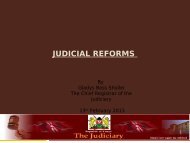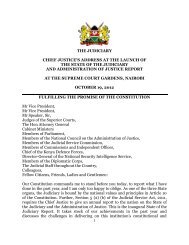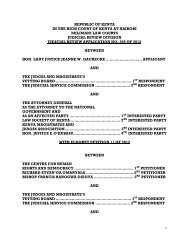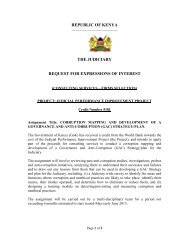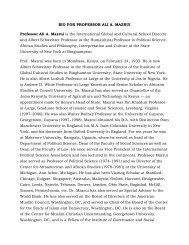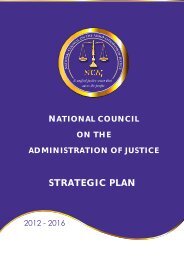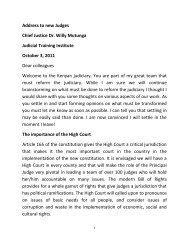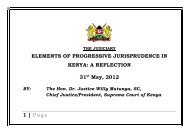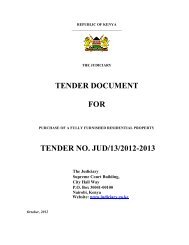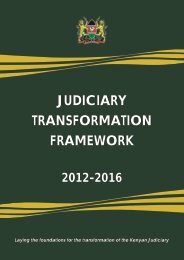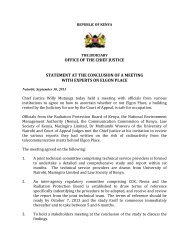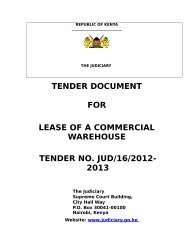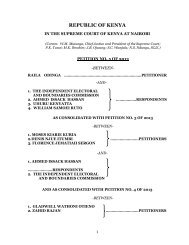REPUBLIC OF KENYA - The Judiciary
REPUBLIC OF KENYA - The Judiciary
REPUBLIC OF KENYA - The Judiciary
You also want an ePaper? Increase the reach of your titles
YUMPU automatically turns print PDFs into web optimized ePapers that Google loves.
[24] Learned Senior Counsel, Mr. Oraro urged the Court not to depart<br />
from the decision in the Macharia Case. It was counsel’s submission<br />
that, this being the final Court, it is bound by its decision and, under<br />
Article 163 of the Constitution, it is not given a free hand to depart<br />
from its previous decisions; it may only do so where there are<br />
compelling reasons.<br />
[25] Learned counsel urged that his client’s position was, in fact, the<br />
one supported by some of the authorities relied on by the petitioner:<br />
Dodhia v. National & Grindlays Bank Ltd [1970] E.A. 195; Kiriri<br />
Cotton Co. v. Ranchhodass Devani [1958] E.A. 239; Young v.<br />
Bristol Aeroplane Co. Ltd [1944] 2 All E.R. 293 (CA), [1946] A.C.<br />
163 (HL). That position is consistent with the Court of Appeal decision<br />
in England which was supported on appeal to the House of Lords – as<br />
rendered by Lord Greene, MR [1944] 2 All ER 293 at p.300:<br />
“On a careful examination of the whole matter we have<br />
come to the conclusion that this court is bound to follow<br />
previous decisions of its own as well as those of courts of<br />
co-ordinate jurisdiction. <strong>The</strong> only exceptions to this rule<br />
(two of them apparent only) are [as may be summarized]:<br />
(i) the court is entitled, and bound to decide which of two<br />
conflicting decisions of its own it will follow. (ii) <strong>The</strong> court<br />
15



